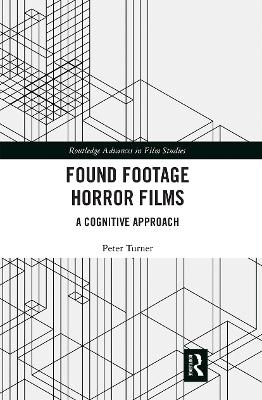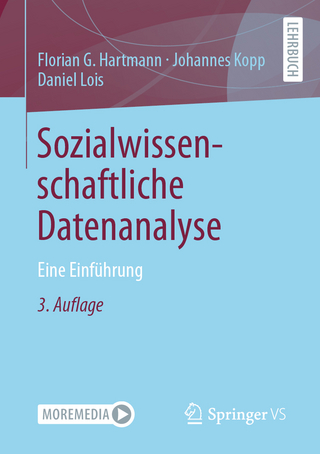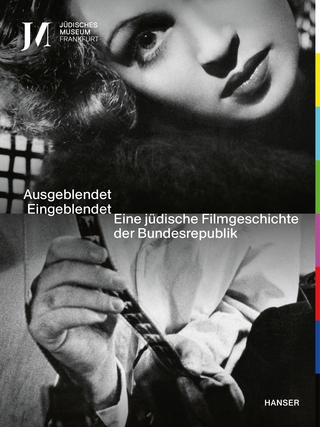
Found Footage Horror Films
Routledge (Verlag)
978-0-367-66184-7 (ISBN)
This book adopts a cognitive theoretical framework in order to address the mental processes that are elicited and triggered by found footage horror films. Through analysis of key films, the book explores the effects that the diegetic camera technique used in such films can have on the cognition of viewers. It further examines the way in which mediated realism is constructed in the films in order to attempt to make audiences either (mis)read the footage as non-fiction, or more commonly to imagine that the footage is non-fiction. Films studied include The Blair Witch Project, Rec, Paranormal Activity, Exhibit A, Cloverfield, Man Bites Dog, The Last Horror Movie, Noroi: The Curse, Autohead and Zero Day
This book will be of key interest to Film Studies scholars with research interests in horror and genre studies, cognitive studies of the moving image, and those with interests in narration, realism and mimesis. It is an essential read for students undertaking courses with a focus on film theory, particularly those interested specifically in horror films and cognitive film theory.
Peter Turner is Associate Lecturer in the School of Technology, Design and Environment at Oxford Brookes University, UK
TABLE OF CONTENTS
List of Figures
Acknowledgements
Introduction: why found footage horror films matter
Approaching diegetic camera horror
The processing of point of view
Developing a cognitive approach to diegetic camera horror
Limits of psychoanalytic theories for diegetic camera horror
Cognitivism and how we think about the diegetic camera
Priming for point of view
Engagement and empathy in diegetic camera films
Attention and cognitive participation: activating the seeking system
Alignment and allegiance with camera operators and charismatic killers
Notes
Bibliography
Filmography
1 Genealogy
Faked representations
First-person point of view
Real death on screen
Developments in technology and the impact on aesthetics: cameras, surveillance, and the dominance of mediated reality
The horror genre: history, aesthetics, and technology
Mimicked forms: documentary, reality television, and home video
Notes
Bibliography
Filmography
2 Narration and the diegetic camera
The diegetic camera and point of view
Issues of narration and enunciation
Self-consciousness
Tone and metatextuality
Performance
Sound and dialogue
Personal imagining
Realism
Notes
Bibliography
Filmography
3 Priming the spectator and mediated reality
Defining priming
Viewer hypothesising
Representing mediated reality with the diegetic camera
Stylistic techniques
Creating mood and emotion
Conclusion
Notes
Bibliography
Filmography
4 Camera operator interaction with viewers and profilmic subjects: The case of home movies
Recognition of camera operators and cinematography as performance
Alignment of information accumulation and cognitive and bodily response
Interaction with the viewer
Interaction between camera operators and profilmic subjects
Empathy, affective identification, and allegiance with camera operators
Allegiance with camera operators engaging in amoral behaviour
Conclusion
Notes
Bibliography
Filmography
5 Allegiance with Charismatic Killers: Man Bites Dog, The Last Horror Movie and Zero Day
Recognition of killers and amoral fascination
How the diegetic camera directs moral evaluations of characters
Empathy, the killer’s face, and the close-up
Moral Structure: Killers and camera operators
Conclusion
Notes
Bibliography
Filmography
Conclusion: The future for diegetic cameras
Re-definitions and classifications
Conclusions
The importance of priming
Self-consciousness and camera operator interaction
Allegiance with charismatic killers
Further areas of exploration
Notes
Bibliography
| Erscheinungsdatum | 01.10.2020 |
|---|---|
| Reihe/Serie | Routledge Advances in Film Studies |
| Verlagsort | London |
| Sprache | englisch |
| Maße | 152 x 229 mm |
| Gewicht | 453 g |
| Themenwelt | Kunst / Musik / Theater ► Film / TV |
| Sozialwissenschaften ► Kommunikation / Medien ► Medienwissenschaft | |
| ISBN-10 | 0-367-66184-5 / 0367661845 |
| ISBN-13 | 978-0-367-66184-7 / 9780367661847 |
| Zustand | Neuware |
| Haben Sie eine Frage zum Produkt? |
aus dem Bereich


